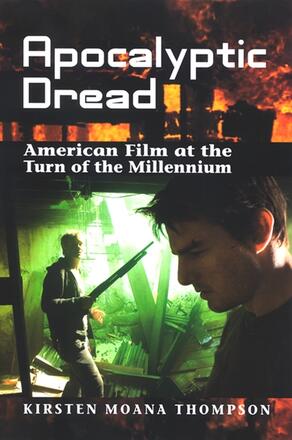
Apocalyptic Dread
American Film at the Turn of the Millennium
Alternative formats available from:
The power and presence of dread in recent American cinema.
Description
In Apocalyptic Dread, Kirsten Moana Thompson examines how fears and anxieties about the future are reflected in recent American cinema. Through close readings of such films as Cape Fear, Candyman, Dolores Claiborne, Se7en, Signs, and War of the Worlds, Thompson argues that a longstanding American apocalyptic tradition permeates our popular culture, spreading from science-fiction and disaster films into horror, crime, and melodrama. Drawing upon Kierkegaard's notion of dread—that is, a fundamental anxiety and ambivalence about existential choice and the future—Thompson suggests that the apocalyptic dread revealed in these films, and its guiding tropes of violence, retribution, and renewal, also reveal deep-seated anxieties about historical fragmentation and change, anxieties that are in turn displaced onto each film's particular "monster," whether human, demonic, or eschatological.
Kirsten Moana Thompson is Associate Professor of Film Studies at Wayne State University and coeditor (with Terri Ginsberg) of Perspectives on German Cinema.
Reviews
"The author's prose … is lucid and the book makes useful historical and cinematic connections. " — CHOICE
"This important contribution to the study and revaluation of popular cinema offers a methodology that is multifaceted in its uses of philosophical, historical, and cultural insights to characterize contemporary cinematic production. It will be of extreme interest to scholars in film and cultural studies, as well as to a more general audience interested in film. " — Marcia Landy, editor of The Historical Film: History and Memory in Media
"Thompson brings to her study a great wealth of valuable and revealing research and shows a truly expert command of film analysis. Engaging and provocative, the book lends itself well to assignments in college courses, where professors can assign film screenings in conjunction with the individual case studies. It can be used in classes on film, cultural studies, religion, women's studies, and popular culture. " — Timothy Shary, author of Generation Multiplex: The Image of Youth in Contemporary American Cinema